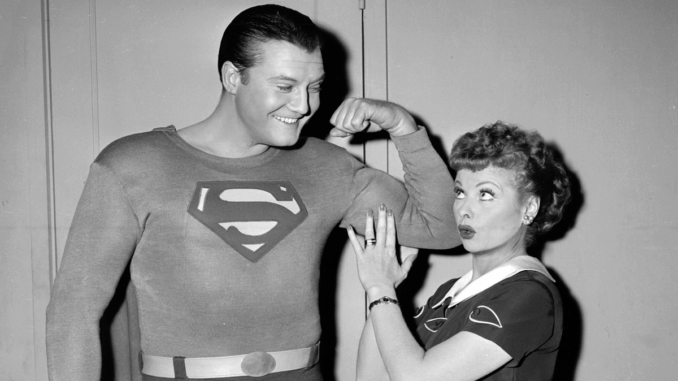
When I Love Lucy first aired in 1951, it broke barriers and set records, becoming one of the most beloved sitcoms of all time. The marriage between Lucy Ricardo (Lucille Ball) and Ricky Ricardo (Desi Arnaz) made audiences laugh week after week, offering a comedic yet idealized glimpse of married life.
But as groundbreaking as the show was for its time, many aspects of Lucy and Ricky’s relationship feel outdated today. Modern viewers, watching through the lens of changing social values, might cringe at certain dynamics that once seemed normal or even funny. Here are 15 things about Lucy and Ricky’s marriage that simply wouldn’t fly today.
1. Ricky Controlling the Household Finances
Ricky constantly managed the couple’s money, often refusing to let Lucy have access to the checkbook. Today, such a one-sided arrangement would be viewed as financial control and inequality in marriage.
2. Lucy Needing Permission for Purchases
Much of the comedy revolved around Lucy hiding shopping sprees or begging Ricky to let her buy something. Modern audiences expect partnerships where both spouses make decisions equally, not where one acts like a gatekeeper.
3. Ricky’s Temper Tantrums
Whenever Lucy caused trouble, Ricky often lost his temper—yelling, scolding, and sometimes humiliating her in front of others. Today, this dynamic would be seen as emotionally unhealthy.
4. Making Jokes About Domestic Roles
The show leaned heavily on the stereotype of a bumbling wife and a serious breadwinning husband. While funny then, such gender stereotypes would feel tired and sexist today.
5. Ricky’s “My Way or No Way” Attitude
Ricky’s decisions were treated as final, whether about Lucy’s career, finances, or household issues. Today, marriage is seen as a partnership rather than a dictatorship.
6. Dismissal of Lucy’s Dreams
Lucy frequently dreamed of being in show business, but Ricky rarely took her seriously, often belittling her ambitions. In 2025, a supportive partner is expected to encourage rather than dismiss a spouse’s goals.
7. The “Silly Wife” Trope
Lucy was portrayed as ditzy, impulsive, and constantly getting into trouble—while Ricky acted as the voice of reason. The imbalance reinforces stereotypes that undermine women’s intelligence.
8. Ricky Speaking in Spanish When Angry
Ricky often scolded Lucy in Spanish, played for laughs. While not malicious, it leaned on ethnic stereotypes that would be criticized as insensitive today.
9. Public Embarrassment as Comedy
Lucy was frequently embarrassed by Ricky in front of friends, neighbors, or business associates. Modern audiences might find this humiliating and unsupportive rather than funny.
10. Marriage Centered Solely Around the Husband’s Career
Ricky’s job as a nightclub bandleader always took precedence, while Lucy’s world revolved around supporting him. Today’s viewers expect more balance in marriage and career pursuits.
11. Arguments Played Off as Harmless
Many episodes featured shouting matches between Lucy and Ricky, treated as funny marital banter. Today, such frequent conflict might be seen as unhealthy or toxic.
12. Rigid Gender Roles in Parenting
When Lucy became pregnant, the show emphasized her as the sole caregiver, while Ricky remained focused on work. Modern expectations favor shared parenting responsibilities.
13. Ricky “Teaching Lucy a Lesson”
Often, Ricky’s role was to “discipline” Lucy when she got into mischief, almost like a parent correcting a child. Today, such dynamics would be seen as condescending.
14. Lack of Emotional Support
Ricky rarely validated Lucy’s feelings. Instead, her frustrations were the butt of jokes. Audiences today expect to see mutual empathy and respect in on-screen relationships.
15. Treating Marriage as a Battle of Wits
Much of the humor came from Lucy scheming behind Ricky’s back, and Ricky trying to outsmart her. While funny in the 1950s, modern couples are portrayed more as teammates rather than adversaries.
A Love That Still Made History
Despite these outdated dynamics, I Love Lucy remains a cultural treasure. The show broke ground by featuring a real-life interracial marriage on television, by introducing the concept of a live studio audience, and by showcasing Lucille Ball’s incredible comedic talent.
Lucy and Ricky’s relationship might not fit today’s standards of equality, but their chemistry—and the groundbreaking work of Ball and Arnaz—continues to inspire sitcoms to this day.
